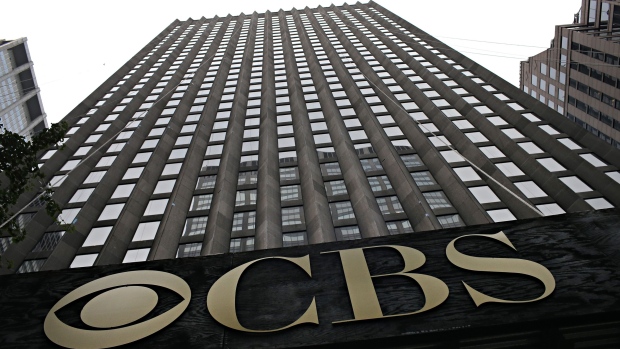Jul 20, 2019
CBS Goes Dark in More Than Dozen Cities Amid AT&T Dispute
, Bloomberg News

(Bloomberg) -- CBS Corp., the most-watched TV network in the U.S., is off the air in more than a dozen U.S. cities due to an impasse between the network and AT&T Inc., one of the largest pay-TV providers.
The network said in a tweet that AT&T has dropped it from its DirecTV and AT&T U-verse, which affects customers in cities such as New York, Chicago and Los Angeles, where the pay-TV operator’s logo appears in place of the CBS local channel late Friday night Pacific time. The two sides have failed to agree on the cost of CBS channels. CBS has asked for a significant price increase, AT&T said Friday. CBS said AT&T has been paying below market rate because of a deal from 2012.
“The DirecTV deal expiring tonight was signed in 2012 and is nowhere close to today’s fair market terms for CBS content -- to which AT&T’s competitors have repeatedly agreed,” CBS said in a statement.
AT&T said it had asked the channels to remain available to customers as talks continue. “CBS removed them instead,” the pay-TV provider said. “This is completely CBS’s decision.”
Fights between TV networks and TV distributors have become more common as both sides suffer from declining subscriptions to cable and satellite. U.S. pay-TV operators lost 1.4 million subscribers in the first quarter of 2019, the worst loss on record.
AT&T is attempting to limit cost increases at its pay-TV division, which has lost customers in recent years. AT&T lost 627,000 customers in the first quarter of this year. In July, AT&T blacked out 120 stations operated by Nexstar Media Group Inc., including local affiliates of ABC, CBS, NBC and Fox, in a similar dispute over programming costs.
Viewership of all major TV networks is in decline, but that hasn’t stopped them from asking for more money. CBS has been one of the most aggressive companies in seeking fee increases from pay-TV providers that carry its network, what’s known as retransmission fees. Retransmission and reverse compensation fees grew to $1.6 billion in 2018, according to company documents.
CBS’s last deal with AT&T was signed in 2012 as the network was beginning to press pay-TV systems to pay more for its programming. In September 2013, CBS won a big increase in fees after blacking out its programming from Time Warner Cable for a month before the start of the National Football League season.
Football season doesn’t start for more than a month, which gives AT&T some time before viewership of CBS rises.
AT&T said it asked CBS to let it carry the CBS All Access streaming service but was rebuffed, even though Roku and Amazon offer the service.
Besides the CBS broadcast network, the dispute involves stations of the CW network in five cities.
(Updates with AT&T’s comment in fourth paragraph.)
To contact the reporter on this story: Lucas Shaw in Los Angeles at lshaw31@bloomberg.net
To contact the editors responsible for this story: Nick Turner at nturner7@bloomberg.net, John J. Edwards III
©2019 Bloomberg L.P.





